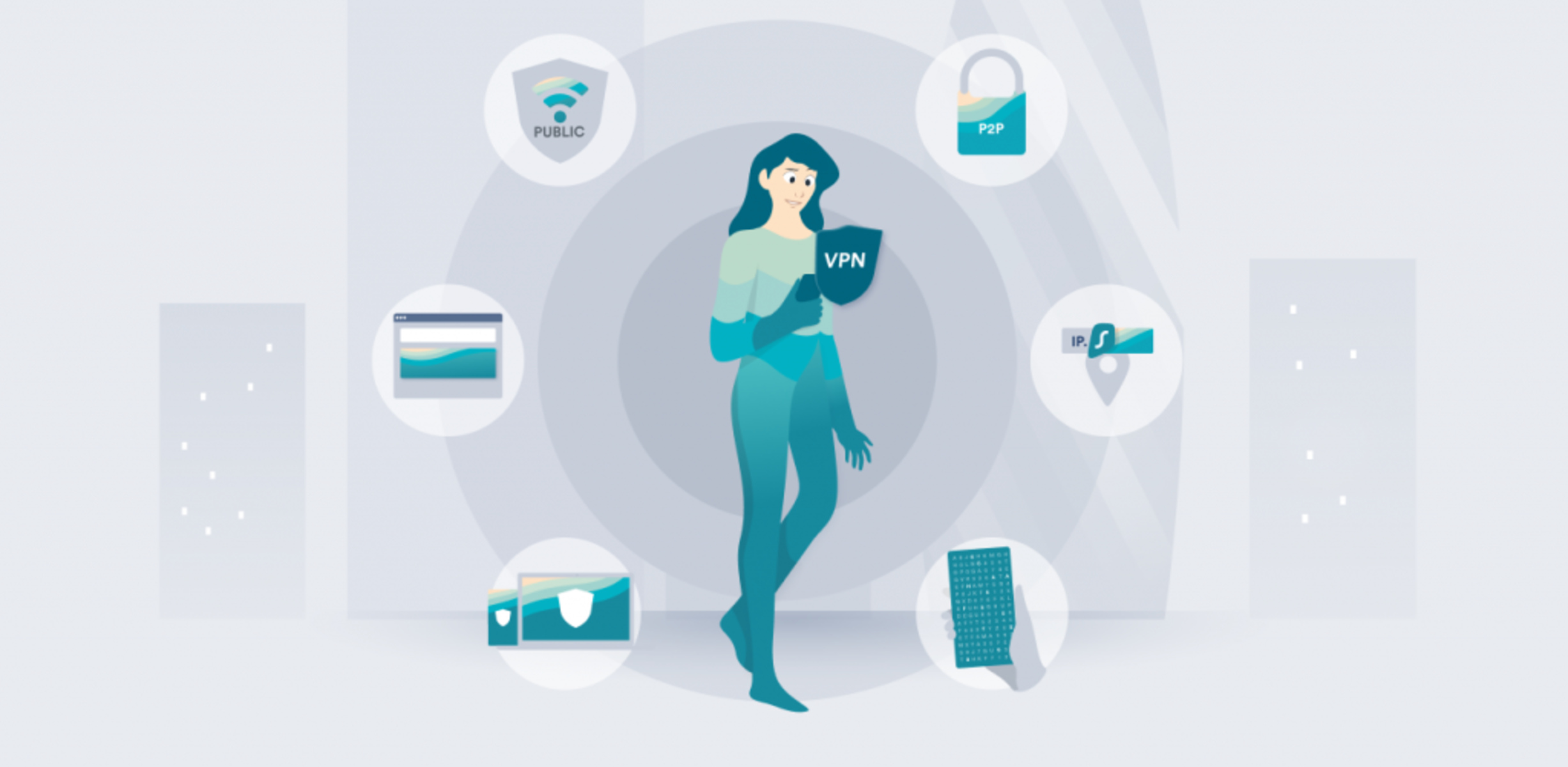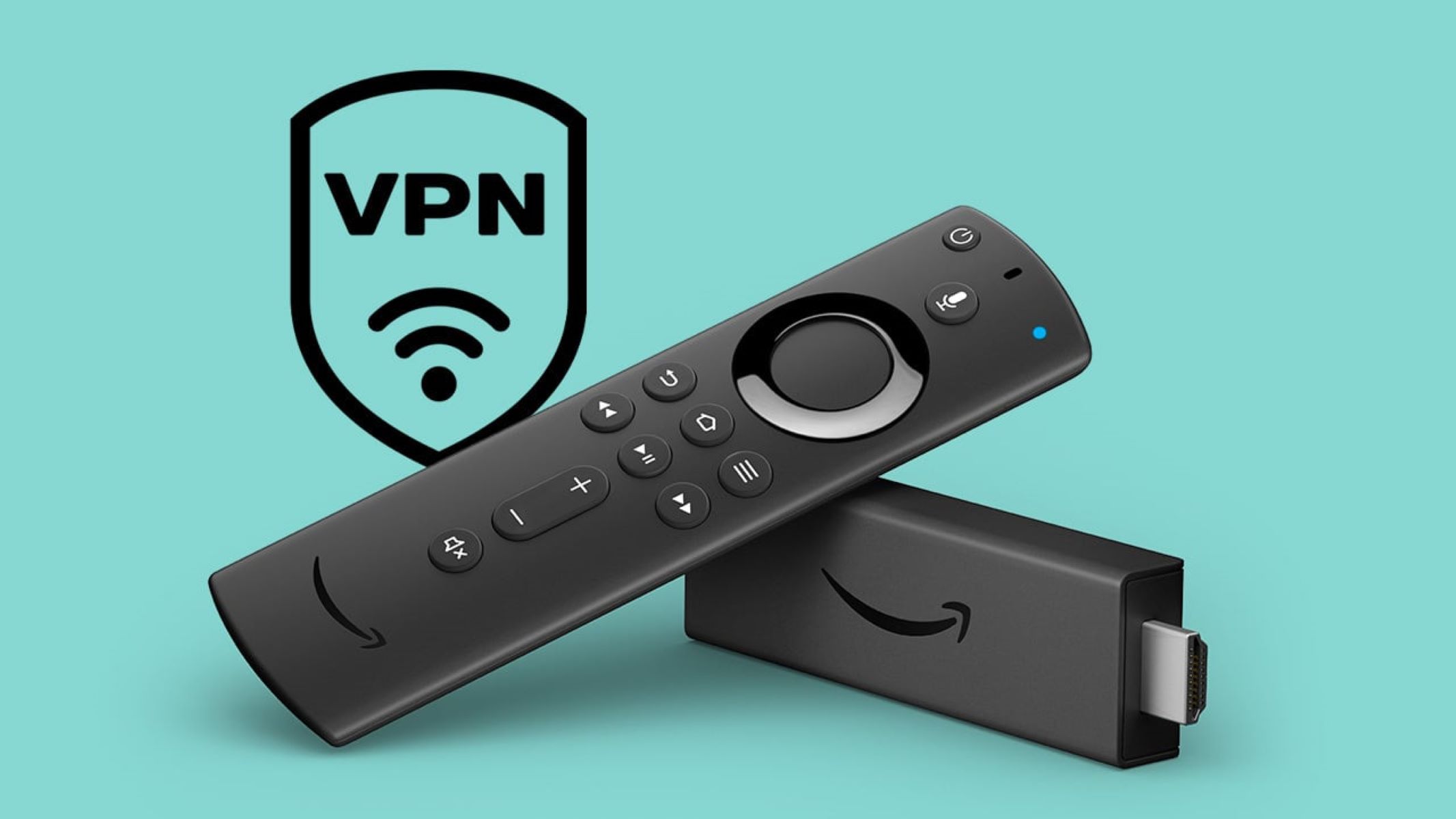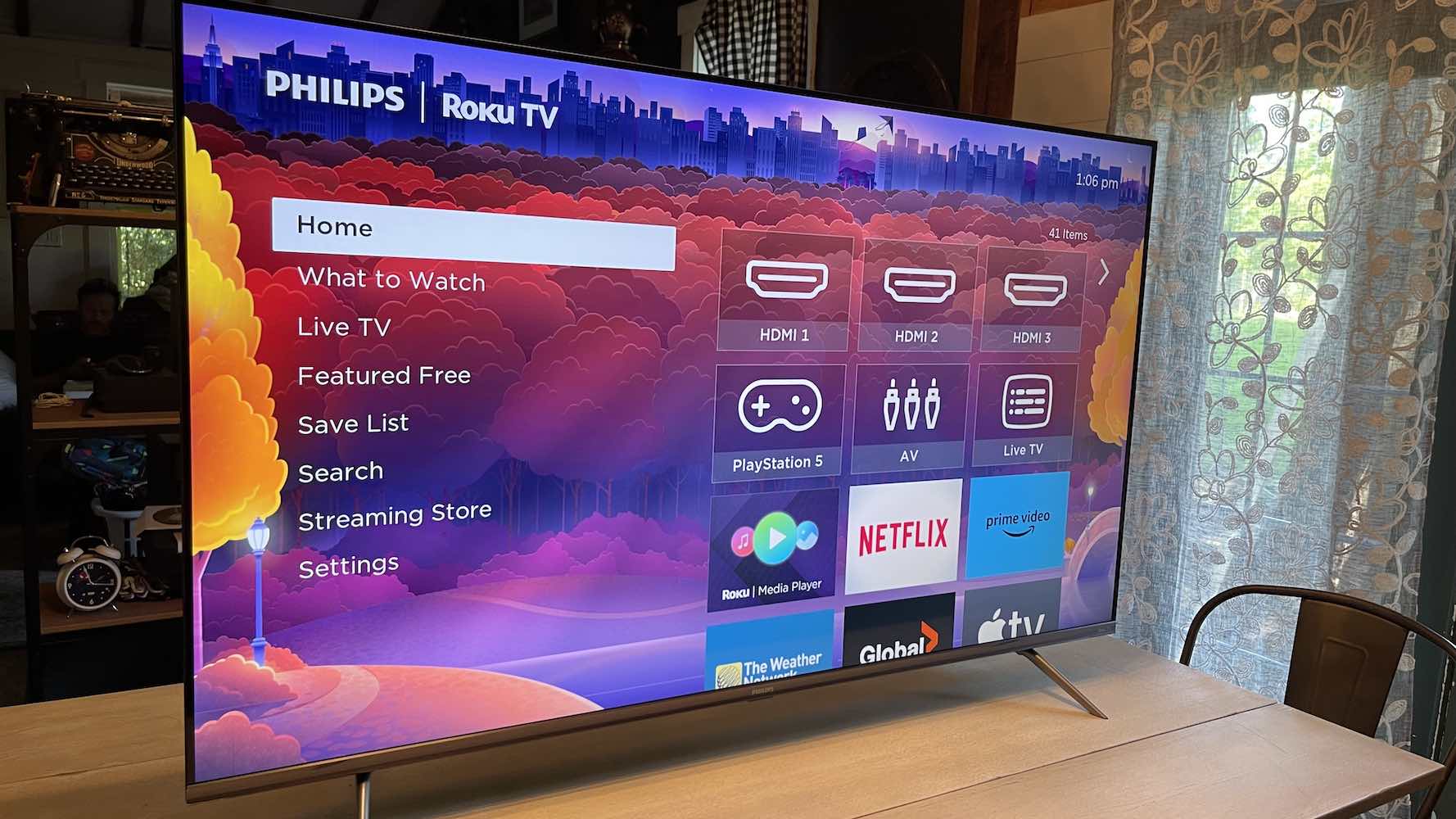Introduction
In today’s increasingly digital world, online privacy and security have become major concerns for individuals and businesses alike. As we browse the internet, our personal information, browsing history, and sensitive data are vulnerable to prying eyes. That’s where a Virtual Private Network (VPN) comes into play.
A VPN is a powerful online tool that protects your privacy and enhances your security while you’re connected to the internet. It creates a secure and encrypted connection between your device and a remote server, effectively masking your online activities from surveillance or intrusion. With the ever-growing threat of hackers, government surveillance, and data breaches, utilizing a good VPN has become essential for anyone who values their privacy and wants to safeguard their personal information.
A good VPN offers numerous benefits beyond just privacy and security. It allows you to bypass geographic restrictions and access content that may be blocked in your region. Whether you want to stream your favorite shows, access restricted websites, or use public Wi-Fi securely, a VPN can offer you the freedom and peace of mind you need.
Choosing the right VPN provider is crucial, as not all VPNs are created equal. In this article, we will explore the fundamentals of VPNs, the key features to look for in a good VPN provider, and the common myths surrounding VPNs. Additionally, we will provide you with important considerations when selecting a VPN, as well as tips on setting up and using a VPN effectively.
So, if you’re ready to take control of your online privacy and security, join us as we dive into the world of VPNs and discover what it takes to find a good VPN that meets your needs.
Benefits of Using a VPN
Using a VPN offers a multitude of advantages that go beyond just protecting your privacy and security. Let’s explore some of the key benefits of utilizing a VPN:
- Enhanced Online Privacy: Perhaps the most significant benefit of using a VPN is the ability to maintain your online privacy. By encrypting your internet connection, a VPN prevents your ISP (Internet Service Provider), government agencies, and other malicious entities from tracking your online activities and collecting your personal data.
- Secure Data Transfer: VPNs provide a secure tunnel for transferring your data between your device and the remote server. This means that even if you’re using public Wi-Fi, which is notorious for its lack of security, your data remains protected and encrypted.
- Access to Restricted Content: With a VPN, you can bypass geo-restrictions and access online content that may be blocked in your country or region. Whether you want to stream your favorite TV shows and movies or access social media platforms that may be restricted, a VPN allows you to enjoy unrestricted internet access.
- Protection from Hackers: Cybercriminals are constantly seeking ways to exploit vulnerabilities and gain unauthorized access to sensitive information. By using a VPN, you add an extra layer of security, making it significantly more challenging for hackers to intercept your data or invade your privacy.
- Anonymous Browsing: A VPN masks your IP address and location, making it difficult for websites, advertisers, and other entities to track your online activities. This allows you to browse the internet with anonymity, protecting your online identity and preventing targeted ads and tracking.
These are just a few of the many benefits that a VPN can offer. It’s important to choose a reliable and reputable VPN provider to ensure you fully enjoy these advantages. In the next section, we will explore the features to look for in a good VPN provider.
How Does a VPN Work?
A VPN works by establishing a secure and encrypted connection between your device and a remote server operated by the VPN provider. When you connect to the internet through a VPN, your internet traffic is routed through this encrypted tunnel, effectively masking your IP address and protecting your data from prying eyes.
Here’s a simplified breakdown of how a VPN works:
- Encryption: When you initiate a connection to a VPN server, your device encrypts all the data that is sent and received. This encryption ensures that even if your internet traffic is intercepted, it will be indecipherable to anyone trying to access it.
- Tunneling: Once your data is encrypted, it is encapsulated within a secure tunnel. This tunnel acts as a protective barrier, preventing anyone outside the tunnel from accessing your information. It also ensures that your internet traffic can’t be tampered with or altered.
- IP Address Masking: As your data passes through the VPN server, your original IP address is replaced with the IP address assigned to the server. This IP address masking adds an additional layer of anonymity and makes it difficult for websites or online services to track your browsing activities.
- Remote Server Access: By connecting to a remote server operated by the VPN provider, your internet traffic appears to originate from that server’s location. This allows you to bypass geographic restrictions and access content that may be blocked in your own location.
- Secure Remote Network Access: VPNs are also commonly used by businesses to provide secure remote access to their internal networks. Employees can connect to the company’s VPN and access resources, files, and services as if they were physically present in the office.
It’s important to note that while using a VPN greatly enhances your online security and privacy, it does not make you completely anonymous. Your VPN provider can still see your internet activity, so it’s crucial to choose a trustworthy provider that follows strict no-logs policies to protect your privacy.
In the next section, we will discuss the essential features to consider when selecting a good VPN provider.
What to Look for in a Good VPN Provider
Choosing the right VPN provider is essential to ensure you have a secure and reliable VPN experience. With countless options available in the market, it’s important to consider several key factors before making your decision. Here are some aspects to look for when selecting a good VPN provider:
- Strong Security Measures: A reputable VPN provider should offer robust security features, including strong encryption protocols (such as AES-256), support for secure VPN protocols (like OpenVPN), and additional security features like a kill switch and DNS leak protection. Ensure that the provider takes your privacy and security seriously.
- No-Logs Policy: To protect your privacy, look for a VPN provider that has a strict no-logs policy. This means that they do not collect or store any logs of your online activities, ensuring that there is no record of your browsing history or personal data.
- Wide Server Network: The number and location of the VPN provider’s servers are important factors to consider. A larger server network allows for better access to geo-restricted content and helps to distribute the load, ensuring faster connection speeds for users.
- Fast and Stable Connections: Speed and reliability are crucial when it comes to VPN connections. Look for a provider that offers high-speed connections and has minimal server downtime. This will ensure a smooth and uninterrupted browsing experience.
- User-Friendly Interface: A good VPN provider should have a user-friendly interface, making it easy for users to set up and navigate through the VPN application. Look for providers that offer intuitive apps across multiple devices and platforms.
- Customer Support: Reliable customer support is vital, especially if you encounter technical issues or have questions. Look for VPN providers that offer responsive customer support through various channels, such as live chat, email, or phone.
- Compatibility with Multiple Devices: Consider the compatibility of the VPN provider’s apps with your devices and operating systems. A good VPN should have apps available for a wide range of devices, including desktop computers, smartphones, tablets, and routers.
- Pricing and Subscription Plans: Evaluate the pricing options and subscription plans offered by the VPN provider. Look for a provider that offers a transparent pricing structure with competitive rates and flexible subscription options to suit your needs.
- Positive Reputation and Reviews: Before committing to a VPN provider, do some research and read reviews from trusted sources. Consider the provider’s reputation in terms of performance, privacy, and customer satisfaction to ensure you choose a reliable and trustworthy VPN service.
By taking these factors into account, you will be equipped with the necessary knowledge to select a reputable VPN provider that meets your specific requirements. In the next section, we will delve into the top features that make a good VPN.
Top Features of a Good VPN
A good VPN provider should offer a range of features that enhance your privacy, security, and overall browsing experience. Here are some of the top features to look for when choosing a VPN:
- Strong Encryption: Look for a VPN that utilizes robust encryption protocols, such as AES-256, to ensure that your data is well-protected and unreadable to unauthorized parties.
- Multiple Server Locations: A wide network of servers in different locations allows you to bypass geographical restrictions and access content from around the world. It also helps to distribute the user load, ensuring faster connection speeds.
- Fast Connection Speeds: Slow internet speeds can be frustrating, especially when streaming or downloading content. A good VPN should provide fast and stable connection speeds to ensure smooth browsing and streaming experiences.
- No-Logs Policy: Privacy is a top concern for VPN users. Look for a provider that has a strict no-logs policy, meaning they do not store any records of your online activities and personal information.
- Kill Switch: A kill switch is an important feature that disconnects your internet connection if the VPN connection drops. This prevents any unprotected data from being transmitted, ensuring constant privacy and security.
- Simultaneous Connections: Consider the number of devices that can be connected to the VPN simultaneously. If you have multiple devices, it’s convenient to choose a VPN that allows simultaneous connections to protect all your devices.
- Compatibility: Ensure that the VPN is compatible with the devices and operating systems you typically use. Look for providers that offer dedicated apps for desktops, laptops, smartphones, and routers.
- User-Friendly Interface: A good VPN should have an intuitive interface that is easy to set up and navigate. Look for providers that offer user-friendly apps with clear instructions and simple configurations.
- Customer Support: Reliable customer support is crucial in case you encounter any issues or have questions. Look for providers that offer responsive customer support through various channels, such as live chat, email, or phone.
- Value for Money: Consider the pricing plans and features offered by the VPN provider. Look for a provider that offers competitive pricing, flexible subscription options, and value for the features they provide.
Remember, selecting a VPN with the right combination of features will depend on your specific needs and priorities. It’s important to thoroughly research different providers and compare their offerings before making your decision. In the next section, we will debunk some common myths about VPNs to help you make informed choices.
Types of VPN Protocols
VPN protocols are the set of rules that govern how data is transmitted between your device and the VPN server. Each protocol offers different levels of security, speed, and compatibility. Here are some common types of VPN protocols:
- OpenVPN: OpenVPN is widely regarded as one of the most secure and flexible VPN protocols available. It combines the best of both worlds by offering strong encryption and high-speed connections. It is also compatible with various platforms and devices, making it a popular choice for VPN users.
- IPSec: Internet Protocol Security (IPSec) is a suite of protocols used to secure internet communications. It provides strong encryption and authentication, making it a reliable choice for VPN connections. IPSec is often used in combination with other protocols, such as L2TP or IKEv2, to enhance security.
- L2TP/IPSec: Layer 2 Tunneling Protocol (L2TP) is often combined with IPSec to provide a highly secure VPN connection. L2TP/IPSec offers good security and is natively supported by many operating systems, making it easy to set up. However, it may not be the fastest protocol due to the double encapsulation process.
- PPTP: Point-to-Point Tunneling Protocol (PPTP) is one of the oldest and most widely supported VPN protocols. It offers relatively fast speeds and is easy to set up. However, PPTP has known security vulnerabilities and is generally considered less secure than other protocols, so it may not be the best choice for users who prioritize strong security.
- WireGuard: WireGuard is a relatively new VPN protocol that aims to offer improved security and performance. It is designed to be lightweight and efficient, making it a popular choice for users who need fast connections with strong encryption. While WireGuard is gaining popularity, it may not be as widely supported as older protocols.
When choosing a VPN provider, it’s important to consider the protocols they offer and ensure they align with your security and speed requirements. Many VPN providers offer multiple protocol options, allowing you to choose the one that best suits your needs.
Now that we’ve explored the different types of VPN protocols, let’s debunk some common myths surrounding VPNs in the next section.
Common Myths about VPNs
Despite the increasing popularity of VPNs, there are still several misconceptions and myths surrounding their use. Let’s debunk some of the common myths about VPNs:
- Myth 1: VPNs are only for tech-savvy individuals: While VPN technology may seem complex, modern VPN providers offer user-friendly applications that make it easy for anyone to set up and use a VPN. You don’t need to be a technical expert to enjoy the benefits of a VPN.
- Myth 2: VPNs are only used for illegal activities: While it’s true that a VPN can provide anonymity and privacy, it doesn’t mean that VPNs are exclusively used for illegal activities. VPNs are legitimate tools that can be used to enhance online security, protect your privacy, and access geo-restricted content.
- Myth 3: VPNs slow down internet speeds: While it’s true that using a VPN can introduce some overhead due to encryption and routing, a good VPN provider will prioritize maintaining fast connection speeds. In many cases, the impact on internet speeds is minimal, especially when using high-quality VPN services.
- Myth 4: VPNs provide 100% anonymity: While VPNs can greatly enhance your privacy and security, they do not offer complete anonymity. VPNs can mask your IP address and encrypt your data, but your VPN provider can still see your activity. It’s important to choose a reputable provider with strict no-logs policies for maximum privacy.
- Myth 5: Free VPNs are just as good as paid VPNs: While there are some reputable free VPN services available, most free VPNs come with limitations, such as data caps, slower speeds, and limited server locations. Paid VPNs typically offer more reliable connections, better security features, and customer support.
- Myth 6: VPNs are only necessary when using public Wi-Fi: While using a VPN on public Wi-Fi is highly recommended, it doesn’t mean VPNs are unnecessary when using your home or office network. VPNs provide an extra layer of security regardless of the network you are connected to, making your online activities more secure.
By dispelling these common myths, you can make informed decisions about utilizing a VPN. As we’ve cleared up these misconceptions, let’s move on to the key considerations when choosing a VPN in the next section.
Key Considerations When Choosing a VPN
When selecting a VPN provider, it’s essential to consider several factors to ensure you choose a service that meets your specific needs. Here are some key considerations to keep in mind:
- Security and Privacy: Look for a VPN provider that offers robust security measures, such as strong encryption protocols, a strict no-logs policy, and additional security features like a kill switch and DNS leak protection. Your chosen VPN should prioritize your privacy and ensure your online activities are protected.
- Server Network: A larger server network with diverse locations allows you to bypass geo-restricted content and ensures better connection speeds. Consider the number of servers and the locations offered by the VPN provider, especially if you want access to specific regions.
- Connection Speed: Speed is crucial for a smooth browsing experience. Choose a VPN provider that offers fast and stable connection speeds to avoid interruptions and buffering while streaming, gaming, or downloading.
- Device Compatibility: Ensure that the VPN provider offers apps and support for the devices and operating systems you plan to use. It’s important to have compatibility across your various devices to ensure seamless protection and access to all your online activities.
- Ease of Use: A user-friendly interface is important, especially for those new to VPNs. Look for VPN providers that offer intuitive and easy-to-use applications with clear instructions for setup and configuration.
- Customer Support: In case you encounter issues or have questions, reliable customer support is crucial. Choose a VPN provider that offers responsive customer support through various channels, such as live chat, email, or phone, to ensure your concerns are addressed promptly.
- Pricing and Plans: Evaluate the pricing options and subscription plans offered by VPN providers. Consider your budget and look for a provider that offers affordable pricing with flexible subscription plans. It’s important to find a balance between cost and the features you require.
- Positive Reputation: Research the VPN provider’s reputation by reading reviews from trusted sources. Look for providers with positive user feedback, strong performance, and a track record of delivering reliable and secure services.
By carefully considering these key factors, you will be better equipped to choose a VPN provider that aligns with your requirements for security, privacy, and overall online experience. In the next section, we will provide insights into setting up and using a VPN effectively.
Setting up and Using a VPN
Setting up and using a VPN is typically straightforward, especially with user-friendly VPN applications available. Here are some steps to effectively set up and use a VPN:
- Choose a VPN Provider: Research and select a reputable VPN provider that meets your requirements based on the key considerations we discussed earlier.
- Subscribe and Install: Sign up for a subscription plan with the chosen VPN provider and download the appropriate VPN app for your device or operating system.
- Configure the VPN App: Launch the VPN app and follow the on-screen instructions to set up your VPN connection. This usually involves entering your login credentials provided by the VPN provider.
- Select a Server: Once connected to the VPN app, choose a server location from the available options. Consider selecting a server in a location that corresponds to the content or services you want to access.
- Connect to the VPN: Click the connect button within the VPN app to establish a secure connection to the selected server. Wait for the app to confirm that you are connected.
- Verify the Connection: To ensure your VPN is working correctly, you can verify your IP address and location by using online tools or websites. These tools will show the IP address and location associated with the VPN server you are connected to, rather than your actual information.
- Use the Internet as Normal: Once the VPN is connected, you can use the internet as you normally would. All your internet traffic will be encrypted and routed through the VPN server, protecting your data and providing enhanced security.
- Disconnect when Finished: When you have finished using the VPN, it’s a good practice to disconnect from the VPN server. This will restore your regular internet connection and ensure that your data is not unnecessarily routed through the VPN.
Remember to keep your VPN app updated and ensure you have an active subscription to maintain your VPN service. Additionally, if you encounter any issues or have questions, consult the VPN provider’s documentation or reach out to their customer support for assistance.
By following these steps, you can set up and use a VPN effectively to enhance your online privacy, security, and browsing experience.
Conclusion
In today’s digital landscape, where online privacy and security are of paramount importance, using a VPN has become crucial. A Virtual Private Network provides numerous benefits, including enhanced privacy, secure data transfer, access to geo-restricted content, and protection from hackers.
When choosing a VPN provider, it is important to consider key factors such as security measures, server network, connection speeds, device compatibility, ease of use, customer support, pricing, and reputation. By carefully evaluating these considerations, you can select a VPN that meets your specific needs and offers a reliable and secure service.
Additionally, it’s important to debunk common myths about VPNs, such as the belief that VPNs are only for tech-savvy individuals or exclusively used for illegal activities. VPNs are legitimate tools that anyone can use to enhance their online security and privacy.
Setting up and using a VPN is a straightforward process. Choose a reputable VPN provider, subscribe to their service, install the VPN app, configure it based on the provider’s instructions, select a server, and connect. Once connected, you can enjoy the benefits of a secure and private internet browsing experience.
Remember, while a VPN significantly enhances your online security and privacy, it does have limitations. It’s important to choose a trustworthy VPN provider and practice safe online behavior to ensure comprehensive protection.
By understanding the fundamentals of VPNs and considering the factors discussed in this article, you can make informed decisions, protect your privacy, and enjoy a secure and unrestricted internet experience. Stay vigilant, choose a reliable VPN provider, and take control of your online privacy and security.

























